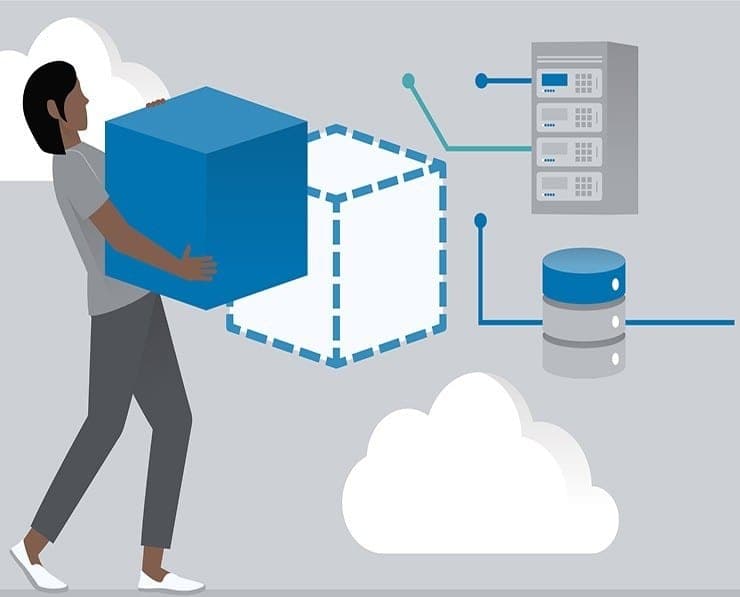Student Feedback
AWS Certified Developer Associate: AWS Certified Developer Associate (DVA-C01) Certification Video Training Course Outline
Introduction
AWS - 10,000 Feet Overview
Identity Access Management (IAM)
Introduction
AWS Certified Developer Associate: AWS Certified Developer Associate (DVA-C01) Certification Video Training Course Info
AWS Certified Developer Associate Practice Exam Course
Achieve the AWS Certified DevOps Engineer Professional (DOP-C02) Certification with 20 Hours of Advanced Video Training.
Description
This AWS Certified Developer Associate DVA-C02 practice exam course is designed to help learners achieve exam success with confidence and clarity. It provides a complete set of high-quality practice tests that accurately reflect the real exam’s format, difficulty level, and question patterns. Each question is carefully crafted to cover every critical domain of the DVA-C02 exam, ensuring that learners strengthen their understanding of AWS development concepts, core services, and best practices. The course offers detailed explanations for each question, enabling learners to understand the reasoning behind correct and incorrect answers while reinforcing key concepts that are likely to appear in the official exam. The content is constantly updated to stay aligned with the latest AWS features and exam requirements, making it a trusted resource for anyone seeking to become AWS Certified.
This course is co-created by experienced instructors Stéphane Maarek and Abhishek Singh, both of whom hold multiple AWS certifications and bring years of real-world expertise to the table. Their combined knowledge ensures that each question is not only relevant but also provides valuable insights into AWS development and deployment scenarios. The explanations go beyond just identifying the right answer by highlighting best practices, architectural principles, and AWS service details. By working through these questions, learners will develop the ability to identify the most efficient and secure solutions, just as required in the actual certification exam.
The practice exams in this course provide an ideal environment for learners to test their knowledge, identify weak areas, and refine their problem-solving skills. The comprehensive question bank offers a wide variety of scenarios covering key AWS services such as Lambda, DynamoDB, API Gateway, S3, and RDS, as well as topics like application deployment, monitoring, and security. By repeatedly attempting these exams, learners can track their progress, build confidence, and ensure they are fully prepared to pass the AWS Certified Developer Associate DVA-C02 exam on their first attempt.
What You Will Learn From This Course
• Master core AWS services such as Lambda, DynamoDB, API Gateway, S3, and RDS
• Understand real-world development scenarios and AWS architecture best practices
• Gain expertise in deploying, managing, and monitoring applications on AWS
• Strengthen your knowledge of AWS security, networking, and performance optimization
• Develop the ability to identify the most cost-effective and scalable solutions
• Build confidence in answering scenario-based exam questions accurately and efficiently
• Learn key strategies to approach and solve complex AWS exam problems
• Enhance your readiness to achieve the AWS Certified Developer Associate certification
Learning Objectives
• Prepare thoroughly for the AWS Certified Developer Associate DVA-C02 exam using realistic practice questions
• Improve understanding of AWS services and their use in application development and deployment
• Build problem-solving skills by analyzing complex AWS scenarios and choosing the correct solutions
• Develop a strong foundation for working as an AWS developer in professional environments
• Gain the confidence to pass the certification exam on the first attempt
Target Audience
• Aspiring AWS developers who want to validate their cloud development skills
• Software engineers and application developers aiming to expand their AWS expertise
• Cloud professionals preparing to advance their careers with an AWS certification
• IT professionals seeking to transition into cloud-based development roles
• Students and tech enthusiasts who want to gain a recognized AWS credential for career growth
Requirements
• A basic understanding of cloud computing concepts is helpful but not mandatory
• Familiarity with at least one programming language, such as Python, Java, or Node.js, will be useful
• Access to an AWS Free Tier account to practice services and explore configurations
• A willingness to learn and dedicate time to practicing exam-style questions for thorough preparation
Prerequisites
• Some experience with AWS services like EC2, S3, or Lambda is recommended for a smoother learning journey
• Basic knowledge of software development and deployment processes is advantageous
• Prior exposure to cloud infrastructure concepts will help in understanding exam scenarios more effectively
Course Overview
This course serves as a complete preparation guide for the AWS Certified Developer Associate DVA-C02 exam. With a large collection of original, scenario-based practice questions, learners are exposed to the same level of challenge they will face during the real certification test. Each explanation is written to provide not only the correct answer but also the reasoning and AWS documentation references that support the solution. This approach ensures that learners develop a deeper understanding of each concept and can confidently apply it in both the exam and real-world AWS environments.
The course is structured to allow unlimited retakes of the practice exams, encouraging learners to attempt each test multiple times until they achieve mastery over every topic. This repetitive practice strengthens memory retention and reinforces key principles, making it easier to recall information under exam pressure. Whether studying on a computer or through the Udemy mobile app, learners have the flexibility to practice anytime and anywhere, ensuring efficient use of study time.
Instructor support is available throughout the course to address questions or provide clarification on complex topics. This ensures that learners are never left confused or uncertain about any concept. With a 30-day money-back guarantee, learners can enroll with complete peace of mind, knowing they are investing in a course that prioritizes their success. By the end of this course, students will have the skills, confidence, and knowledge required to achieve a high score and earn the AWS Certified Developer Associate credential, opening doors to advanced cloud development roles and career growth opportunities.
Course Modules / Sections
The AWS Certified Developer Associate DVA-C02 practice exam course is organized into comprehensive modules that guide learners through every aspect of the certification process. Each module is carefully designed to provide an in-depth understanding of AWS development services, exam scenarios, and question-solving strategies. The course begins with an introductory module that outlines the exam structure, key domains, and preparation strategies to give learners a clear roadmap for their journey. This opening section sets the tone for the entire course and provides insights into how to approach the practice exams effectively.
The second module focuses on core AWS services that developers must master to succeed in the DVA-C02 exam. This includes topics such as AWS Lambda, DynamoDB, Amazon S3, Amazon RDS, and API Gateway. Each service is explained through real-world use cases and scenario-based practice questions, enabling learners to build practical knowledge and hands-on skills. This section ensures that students understand how to develop, deploy, and maintain applications using AWS tools and services.
The next module covers application integration and development best practices. Learners explore advanced topics such as messaging services like Amazon SQS and SNS, monitoring with CloudWatch, and logging with CloudTrail. The module also includes exam-style questions that test knowledge of event-driven architecture, serverless application design, and high-availability deployment strategies. By practicing with these questions, learners gain confidence in designing scalable and secure applications that meet the standards required by the certification exam.
The fourth module is dedicated to AWS security and identity management. This section provides a deep dive into IAM roles, policies, and permissions, along with encryption methods, secure coding practices, and compliance considerations. Since security is a key domain in the AWS Certified Developer Associate exam, this module helps learners understand how to protect applications and data within AWS environments. The practice questions in this module focus on identifying secure solutions and implementing best practices to meet regulatory requirements.
The final module brings all the learning together by providing full-length practice exams that simulate the real DVA-C02 exam. These exams are timed and structured to replicate the pressure and complexity of the actual test, allowing learners to gauge their readiness and fine-tune their test-taking strategies. Each exam is followed by detailed explanations that reinforce concepts and clarify reasoning, ensuring that learners fully understand every topic before attempting the certification.
Key Topics Covered
This course covers all key topics required to pass the AWS Certified Developer Associate DVA-C02 exam, ensuring a comprehensive understanding of AWS development principles and services. The topics include serverless computing with AWS Lambda, database management using Amazon DynamoDB and RDS, and object storage solutions with Amazon S3. Learners also gain knowledge of API Gateway for building and managing APIs, Amazon CloudFormation for infrastructure as code, and AWS Elastic Beanstalk for application deployment.
Other important areas covered in the course include application security, identity and access management, encryption techniques, and best practices for securing AWS environments. Learners also study event-driven architecture, asynchronous messaging with SQS and SNS, and monitoring tools such as CloudWatch and X-Ray. Each topic is explored through realistic scenarios that reflect the type of challenges faced by AWS developers in real-world applications.
The course also emphasizes cost optimization and performance tuning, helping learners understand how to design efficient and scalable applications. Topics such as caching strategies, database indexing, and content delivery with CloudFront are included to ensure that learners are equipped to develop high-performing solutions. Additionally, the course covers deployment pipelines, continuous integration and continuous delivery (CI/CD), and developer tools such as AWS CodeCommit, CodePipeline, and CodeBuild, providing a complete picture of the AWS development lifecycle.
By mastering these key topics, learners build the technical foundation necessary to excel not only in the certification exam but also in professional cloud development roles. The combination of in-depth explanations, real-world examples, and scenario-based questions ensures that learners can apply their knowledge to both exam situations and practical AWS projects.
Teaching Methodology
The teaching methodology of this course is designed to provide an engaging, practical, and results-oriented learning experience. Instead of relying on theoretical lectures alone, the course uses a practice-first approach that focuses on solving real exam-style questions. Each question is carefully crafted to reflect the complexity and style of the AWS Certified Developer Associate exam, ensuring that learners are fully prepared for the challenges they will encounter on test day.
Detailed explanations accompany every question to help learners understand not only the correct answer but also the reasoning behind it. These explanations often include references to AWS best practices, architecture guidelines, and service-specific details, reinforcing key concepts and helping learners develop a deeper understanding of the material. This method ensures that students are not simply memorizing answers but are truly mastering the concepts needed to succeed in the exam and in their professional careers.
The course also incorporates continuous updates to keep content aligned with the latest AWS services and certification requirements. As AWS frequently introduces new features and best practices, the instructors regularly review and revise the question bank to ensure it remains current and relevant. This commitment to up-to-date content provides learners with the confidence that they are preparing with the most accurate and comprehensive material available.
Flexibility is another key aspect of the teaching methodology. Learners can access the course on a computer or mobile device, allowing them to study at their own pace and convenience. The practice exams can be retaken as many times as needed, encouraging repetition and helping learners track their progress over time. This self-paced approach allows students to focus on their individual areas of weakness and steadily build their skills until they are fully prepared to pass the certification exam.
Instructor support is also an integral part of the learning process. Learners can reach out to the instructors with questions or for clarification on complex topics, ensuring that they never feel stuck or unsupported during their preparation. This interactive element enhances the overall learning experience and provides valuable guidance from experts who have successfully passed multiple AWS certifications themselves.
Assessment & Evaluation
Assessment and evaluation in this course are designed to measure knowledge, identify areas for improvement, and build exam readiness. The primary method of assessment is through the extensive set of practice exams, which replicate the structure, timing, and difficulty of the real AWS Certified Developer Associate DVA-C02 exam. Each practice exam includes a wide range of scenario-based questions that test learners’ ability to apply their knowledge to real-world AWS environments.
After completing each exam, learners receive detailed feedback on their performance, including scores for each domain and explanations for every question. This feedback helps learners identify strengths and weaknesses, allowing them to focus their study efforts on the areas that need the most improvement. By reviewing the explanations and revisiting challenging questions, students can reinforce their understanding and avoid making the same mistakes on the actual certification exam.
The course encourages repeated practice as a key strategy for success. Learners can retake the practice exams as many times as necessary to achieve mastery over the material. This repetition not only strengthens knowledge retention but also improves test-taking skills such as time management, question analysis, and decision-making under pressure. By simulating the conditions of the real exam, the course helps learners develop the confidence and endurance needed to perform well on test day.
In addition to the full-length practice exams, the course includes domain-specific question sets that allow learners to focus on individual topics. These targeted assessments help students concentrate on specific areas such as AWS Lambda, DynamoDB, or security practices, making it easier to build expertise in each domain before attempting the complete exam. The combination of full-length tests and domain-focused assessments provides a balanced evaluation strategy that prepares learners for every aspect of the certification.
The evaluation process is further supported by the instructors’ ongoing commitment to updating and refining the question bank. As AWS services evolve and exam patterns change, new questions are added to reflect the latest developments, ensuring that learners are always practicing with relevant and challenging material. This dynamic approach to assessment guarantees that students are fully equipped to meet the demands of the AWS Certified Developer Associate DVA-C02 exam and achieve certification success.
Benefits of the Course
The AWS Certified Developer Associate DVA-C02 practice exam course offers a wide range of benefits designed to help learners achieve success in both the certification exam and real-world cloud development roles. One of the most significant advantages is the extensive question bank, which provides hundreds of original, scenario-based questions that closely replicate the format and difficulty of the actual AWS exam. Each question is designed to test a learner’s understanding of AWS services, development strategies, and best practices, ensuring that students are fully prepared for every aspect of the certification.
A major benefit of this course is the depth of the explanations provided for each question. Instead of simply presenting the correct answer, the course offers detailed reasoning that explains why one option is correct and why others are not. This method not only reinforces key concepts but also helps learners develop critical thinking and problem-solving skills, which are essential for both the exam and professional cloud development projects. The explanations also incorporate AWS best practices, security considerations, and architectural recommendations, helping learners build knowledge that extends beyond the scope of the certification.
Flexibility is another key benefit. The course is fully self-paced, allowing learners to study at their convenience from anywhere in the world. Whether accessed on a desktop or through the Udemy mobile app, students can take practice exams and review explanations on their schedule, making it easier to balance preparation with work, school, or other commitments. The ability to retake the exams as many times as needed provides unlimited practice opportunities, helping learners strengthen their weak areas and improve their scores over time.
The course also offers tremendous value as a career investment. Earning the AWS Certified Developer Associate certification can open doors to new job opportunities, promotions, and higher salaries in the cloud computing field. By mastering the concepts and services covered in this course, learners not only prepare for the exam but also gain practical skills that are highly valued in the technology industry. Employers often look for candidates with AWS certifications, and this course provides the knowledge and confidence needed to meet those expectations.
In addition to career advancement, the course provides long-term learning benefits. The skills acquired through repeated practice with AWS services, security configurations, and application deployment scenarios will remain relevant well beyond the certification exam. As cloud technology continues to evolve, the foundational knowledge built in this course will help learners stay adaptable and ready to tackle new challenges in their careers. Instructor support adds to these benefits by giving learners the opportunity to seek clarification and guidance whenever needed, ensuring a comprehensive and supported learning experience.
Course Duration
The AWS Certified Developer Associate DVA-C02 practice exam course is designed to accommodate a variety of learning styles and schedules, making it suitable for both full-time professionals and students. The total duration of the course depends largely on each learner’s background, experience, and study pace, but it typically requires several weeks of focused preparation to achieve mastery over all topics. On average, students who dedicate consistent time to studying can complete the course and feel exam-ready in four to six weeks.
The course is divided into multiple modules, each containing a series of practice exams and detailed explanations. Learners are encouraged to progress through each module at their own speed, ensuring that they thoroughly understand every concept before moving on to the next section. For those with prior experience in AWS services or cloud development, the course may be completed in a shorter time frame by focusing on practice exams and quickly identifying areas that require additional review.
For beginners or those new to AWS, a longer preparation period is recommended to allow for repeated practice and reinforcement of key concepts. Spending one to two hours per day on practice questions, explanations, and review is an effective strategy for gradual but steady progress. The course’s flexible structure allows learners to adjust their study schedule as needed, whether they prefer intensive daily sessions or slower, more methodical preparation over several months.
One of the key features of this course is the ability to retake practice exams as many times as necessary. This means that learners can revisit challenging questions and focus on specific domains until they achieve a level of confidence that matches the demands of the real exam. The repeated exposure to exam-style questions helps build familiarity with AWS terminology, scenario analysis, and time management skills, which are essential for performing well during the actual test.
Because the course remains accessible even after completion, learners can continue using it as a reference for ongoing skill development. Many students return to the practice exams to refresh their knowledge before job interviews, project implementations, or when preparing for additional AWS certifications. This extended accessibility ensures that the time invested in the course continues to provide value long after the certification exam has been passed.
Tools & Resources Required
To get the most out of the AWS Certified Developer Associate DVA-C02 practice exam course, learners need access to a few key tools and resources that support effective preparation. The most important requirement is a computer or mobile device with a reliable internet connection. Since the course is hosted online, a stable connection ensures smooth access to practice exams, explanations, and instructor support. A desktop or laptop computer is recommended for the best experience, particularly when reviewing detailed explanations or practicing with AWS documentation, although the Udemy mobile app also provides convenient access for studying on the go.
An AWS Free Tier account is highly recommended to complement the practice exams with hands-on experience. While the course itself does not require live AWS configurations, creating an AWS account allows learners to explore services such as Lambda, DynamoDB, S3, and RDS directly. This practical experience reinforces the concepts learned through practice questions and helps students gain familiarity with the AWS Management Console, which is invaluable for understanding real-world scenarios.
Learners should also have a basic text editor or note-taking tool to record key insights, track progress, and highlight areas that require further review. Taking notes while reviewing explanations or AWS documentation helps reinforce learning and provides a personalized reference that can be revisited before the exam.
While no advanced software is required, a modern web browser such as Chrome, Firefox, or Edge ensures compatibility with the course platform and smooth navigation through practice exams. Headphones can also be useful for focused study sessions, particularly when accessing any supplementary video content or instructor feedback.
In addition to digital tools, learners are encouraged to make use of the extensive explanations and AWS documentation links provided within the course. These resources offer valuable context and real-world applications that go beyond the practice questions. By combining the course materials with AWS documentation, learners gain a deeper understanding of service limits, architectural best practices, and security requirements that are critical for the DVA-C02 exam.
Overall, the tools and resources required for this course are minimal and accessible to anyone with an internet connection and a desire to learn. With a computer or mobile device, an AWS Free Tier account, and a commitment to consistent practice, learners have everything they need to prepare effectively and achieve success on the AWS Certified Developer Associate DVA-C02 certification exam.
Career Opportunities
Achieving the AWS Certified Developer Associate DVA-C02 certification opens a world of career opportunities in cloud computing and application development. As more organizations move their infrastructure and services to the cloud, the demand for professionals with strong AWS skills continues to grow. This certification validates your ability to build, deploy, and maintain applications on the AWS platform, making you a valuable asset to companies across industries such as technology, finance, healthcare, retail, and e-commerce. Whether you are starting your career or looking to advance in your current role, this credential sets you apart from other candidates in the job market.
Certified AWS developers are in high demand for roles such as Cloud Developer, AWS Developer, Software Engineer, DevOps Engineer, Solutions Architect, and Backend Developer. These roles often involve designing and implementing scalable applications, optimizing cloud-based workflows, managing AWS services, and ensuring the security of cloud environments. Many organizations are willing to offer competitive salaries and benefits to professionals who can demonstrate expertise in AWS services and development practices. According to industry trends, AWS-certified professionals consistently rank among the highest-paid in the technology sector, making this certification a powerful step toward financial growth and career stability.
In addition to traditional development roles, this certification can also pave the way for opportunities in emerging fields such as serverless computing, artificial intelligence, machine learning, and cloud-native application design. Companies increasingly seek developers who can create efficient, cost-effective applications using services like AWS Lambda, DynamoDB, and API Gateway. By mastering these technologies through the preparation provided in this course, you will be equipped to contribute to innovative projects that push the boundaries of modern cloud computing.
Freelancers and independent consultants also benefit from the AWS Certified Developer Associate certification. With cloud-based projects becoming the backbone of many businesses, certified professionals can offer their expertise to startups, small businesses, and large enterprises looking to migrate their operations to AWS. The flexibility of working as a freelance developer allows you to choose projects, set your own rates, and work with clients around the world, creating opportunities for career independence and global networking.
For those already working in cloud-related roles, earning this certification can lead to promotions, new responsibilities, or lateral moves into specialized teams within an organization. Employers often use AWS certifications as a benchmark for technical skill, making it easier to negotiate salary increases or advance into senior positions. The knowledge and credibility gained through the DVA-C02 certification also serve as a strong foundation for pursuing higher-level AWS certifications, such as the AWS Certified Solutions Architect or DevOps Engineer certifications, which can further enhance your career prospects.
Conclusion
The AWS Certified Developer Associate DVA-C02 practice exam course provides everything you need to prepare for one of the most valuable certifications in cloud computing. By offering a comprehensive question bank, detailed explanations, and continuous updates, the course ensures that you build both the knowledge and confidence required to pass the exam on your first attempt. The structured modules guide you through all key domains of the certification, from core AWS services and application development to security, monitoring, and cost optimization.
The benefits of completing this course extend beyond exam preparation. Each practice exam helps you develop practical skills that are directly applicable to real-world AWS development projects. The detailed explanations reinforce best practices and deepen your understanding of how to build secure, scalable, and cost-effective applications in the cloud. These skills are not only essential for passing the DVA-C02 exam but also for excelling in professional roles that require AWS expertise.
By mastering the material in this course, you will be equipped to tackle challenging development scenarios and implement solutions that align with industry standards. The confidence you gain through repeated practice and in-depth explanations will carry over to the actual exam, enabling you to approach test day with clarity and focus. Whether your goal is to secure a new job, earn a promotion, or simply validate your cloud development skills, this course provides the tools and guidance to make it happen.
AWS certifications are recognized globally and respected by employers across all sectors of the technology industry. Successfully achieving the AWS Certified Developer Associate credential demonstrates your commitment to professional growth and your ability to stay current in an ever-evolving field. As cloud computing continues to expand, the demand for certified professionals will only increase, making this certification a long-term investment in your career.
Enroll Today
Now is the perfect time to take the next step in your cloud development journey. By enrolling in this AWS Certified Developer Associate DVA-C02 practice exam course, you gain access to a comprehensive, expertly designed resource that has helped thousands of learners achieve their certification goals. The course offers unlimited practice exams, detailed explanations, and instructor support to ensure that you have everything you need to succeed. Whether you are a beginner looking to break into the world of AWS or an experienced developer seeking to validate your skills, this course provides a proven path to certification.
Enrolling today allows you to start building the confidence and expertise required to pass the exam and excel in your career. With self-paced learning, you can fit study sessions into your schedule and progress at a speed that works best for you. Each practice exam brings you closer to mastery, reinforcing key concepts and helping you identify areas for improvement. The flexibility to retake exams as many times as needed ensures that you can thoroughly prepare without the pressure of deadlines or fixed timelines.
The career opportunities unlocked by this certification are significant and wide-ranging. From high-demand cloud development roles to freelance consulting and advanced certifications, the AWS Certified Developer Associate credential opens doors to professional growth and financial rewards. Employers value certified professionals for their ability to design efficient, scalable solutions, making this certification a powerful tool for career advancement.
By enrolling today, you are investing in your future and positioning yourself for success in one of the fastest-growing areas of technology. Every practice question, detailed explanation, and instructor insight in this course is designed to help you reach your goal of becoming an AWS Certified Developer Associate. Start now and take the first step toward transforming your career with AWS expertise and a globally recognized certification that sets you apart in the competitive world of cloud computing.













